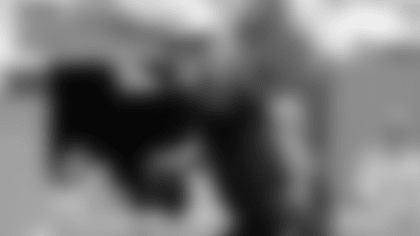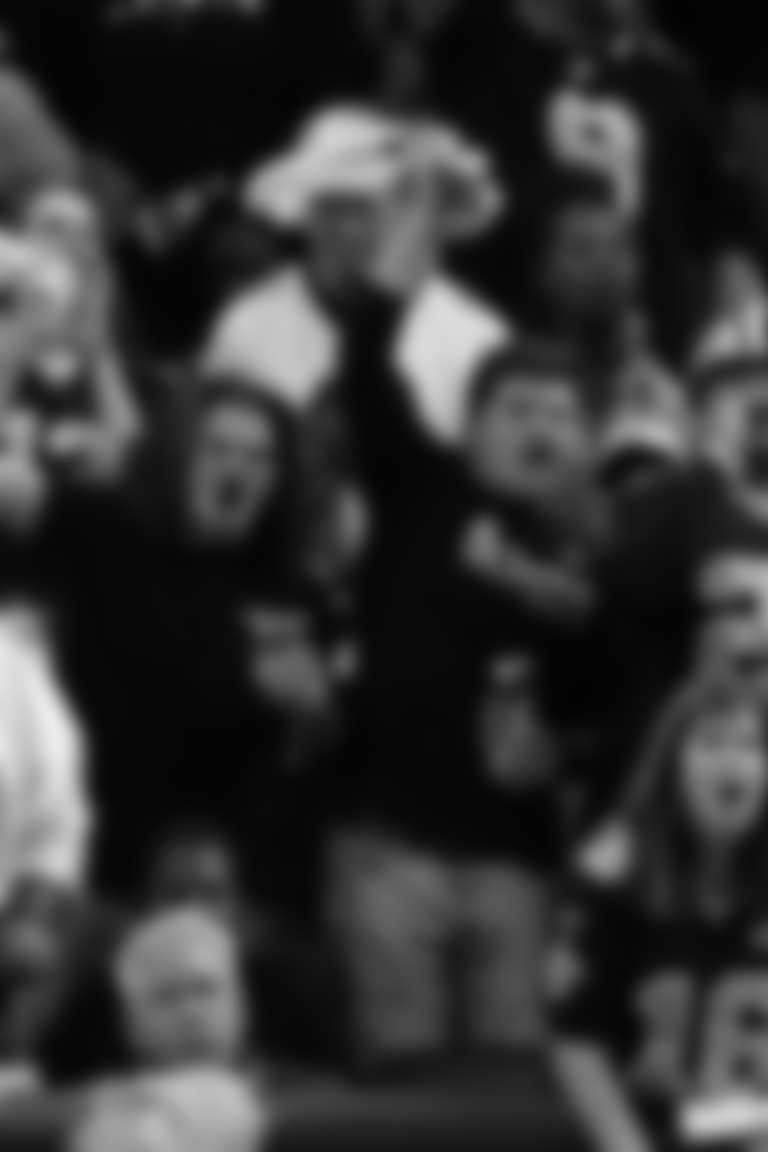It's not quite a full-blown makeover in New Orleans, but look around the Saints' locker room and the future has clearly arrived. The baby faces behind the helmets might still get carded at dinner, but they're already shaping what's next for this franchise. In a 2-8 season that blends hard lessons with hope, New Orleans' tomorrow is taking shape in real time.
The Saints' two-deep rotation includes six rookies or second-year players who are either starting or have started at some point this season: offensive tackles Taliese Fuaga (first-round pick, 2024) and Kelvin Banks Jr. (first-round pick, 2025); quarterback Tyler Shough (second round pick, 2025); safety Jonas Sanker (third round pick, 2025); and cornerbacks Kool-Aid McKinstry (second round pick, 2024) and Quincy Riley (fourth round pick, 2025).
Two other rookies, running back Devin Neal (sixth round) and linebacker Danny Stutsman (fourth round), have seen their game reps increase in recent games.
Shough, Sanker and Riley weren't opening-game starters, and Neal and Stutsman weren't forecast to be heavy contributors, but performance and injuries guided each from the sideline to the huddle.
"There's a lot of guys that we're focused on developing here, and that's certainly my goal and aspiration, is to help these guys become the best players they can be," Saints coach Kellen Moore said. "As we go we're going to keep developing, keep growing.
"We understand that there's some challenges that we've navigated... (but) we can come out of it a really, really good team with a lot of potential moving forward. You see a lot of these younger guys, they take steps each week, they keep growing, they don't make the same mistake twice. We've got to keep growing."

That begins with Shough, who shone against Carolina in his second NFL start, when he completed 19 of 27 passes for 282 yards and two touchdowns, with no interceptions, in a 17-7 road victory.
After Spencer Rattler won the offseason quarterback competition and started the first eight games, Shough replaced him in the third quarter against Tampa Bay and started the next two games. Overall, Shough has completed 51 of 83 passes for 586 yards and three touchdowns, with two interceptions.
"It's just continual reps, continual progression, getting better every single day," Shough said after the win against Carolina. "I think I can continue to get better and be better... Continual progression. That's my job. I've got to continue to do that."
The traits Shough possessed that enticed the Saints to draft him were on display even before he made his first start. "Tyler has a great feel for the game. I think he can handle a lot," Moore said after Shough's debut, a 34-10 loss to the Rams. "We'll build that as we go. There's times when he'll have some different tools as far as protection adjustments, and then we'll try to utilize the headset as much as we can just to get into a few plays in the tempo offense and some of those different situations."
Ultimately, Moore is encouraged by how Shough handles pressure, particularly for a rookie quarterback still learning NFL speed. "You want to see where his eyes go, and ultimately where his body goes (under duress). I thought there was some good stuff. He kept his eyes downfield, and I thought there were some really good examples of him stepping up in the pocket."
"That's always the biggest challenge for young quarterbacks coming up in the NFL. If you try to go backward and out — some guys can get away with it in college — but with the sheer talent of these edge rushers, that's where the big sacks come and the fumbles."
Perhaps the clearest example came just before halftime against the Rams. Shough read the rush, stepped up through pressure, and hit Chris Olave for a 27-yard gain on third down. The kind of pocket management expected from a veteran. "That's a snapshot of everything we want out of Tyler. That was awesome," Moore said.
That adjective also frequently has been used to describe Banks, who became a starter when his name was called on draft night. His addition allowed Fuaga to flip from left to right tackle.
The brigade of young Saints talent is no surprise to Banks.
"They didn't draft you for no reason," he said. "They drafted you because they see the potential you've got, and you're going to get every opportunity you can to go out there and compete. When their opportunity or my opportunity is called, we just go out there and try to do the best we can."
He noted that the defensive players did exactly that.
"It's just that thing of them being able to have the opportunity to step up and play that specific role, and earning the trust from the coaches as well," Banks said. "Those guys have been doing great on their side of the ball and hopefully they can keep doing good."
McKinstry (two), Sanker and Riley (one each) have combined for four of New Orleans' five interceptions this season. The secondary has taken some lumps, but count it as growing pains.
"For me, it's really just me being a sponge, soaking up all the game I can from my vets and sitting back and learning each day," Riley said. "No matter if I'm doing good or bad, just always learning something new each day. That's been my learning experience so far."
For the Saints' youngest players, the lessons often come quietly — not just in team meetings or pep talks, but in the way veterans play or carry themselves. "Sometimes, if you just listen to (the veterans), without them telling you personally, you're going to learn a lot," Riley said. "Just watching how different vets move — you're going to learn who you need to lean on more. They send a message without even telling you a message. Just pay attention closely."
And time on the field allows for chemistry building that will be critical later, Riley said.
"Sanker is a starting safety, so we always have communication like, 'Man, we're going to be here for a minute, we've got to bond a little more, just know each other a little more and have fun,'" Riley said.
For all the growing pains that come with a youth movement, there's also an undeniable energy building inside the Saints' locker room. The losses sting, but the lessons feel valuable — shared experiences that could shape the team's future. "We're young guys on the field but we expect to be good," Riley said.
"Sometimes things are going to go bad. That's just the nature of life. But we've got to lean on each other and pick each other up. It's fun because I know we're going to have learning experiences together and then when it's time to break out, we're going to break out together."




















